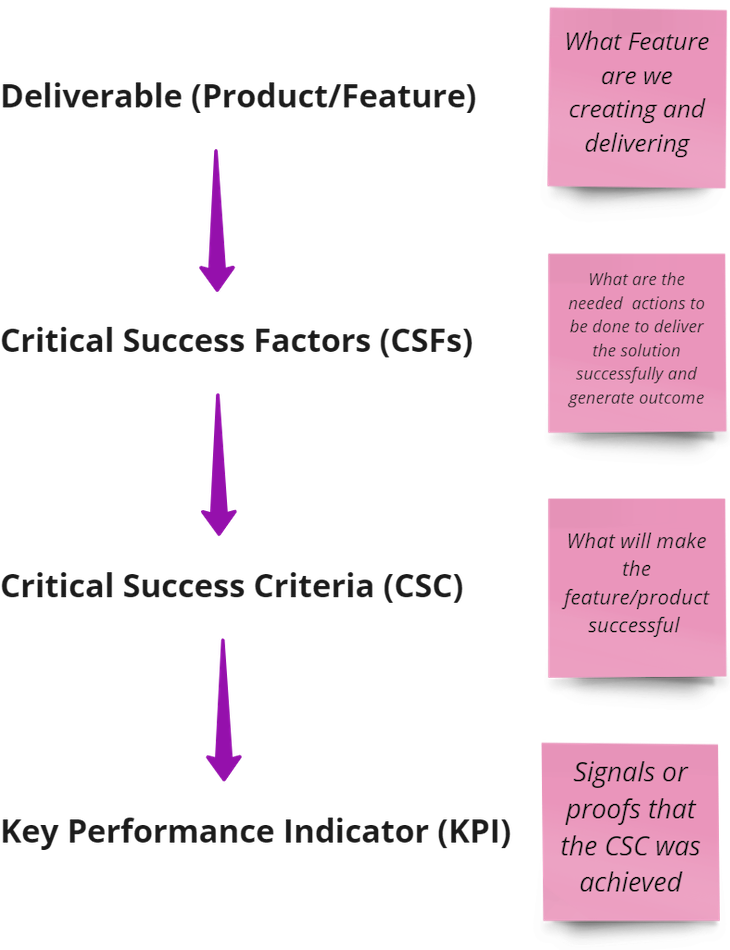Middle Management: A Critical Link In The Chain Of Success

Table of Contents
The Crucial Role of Middle Management in Communication & Strategy
Middle managers act as a vital bridge, connecting the strategic vision of upper management with the day-to-day operations of frontline teams. Their effectiveness in communication and strategic implementation directly impacts organizational success.
Translating Vision into Action:
Middle managers are responsible for taking high-level strategic goals and breaking them down into actionable plans for their teams. This requires strong communication and interpretation skills. They must be able to effectively communicate complex information in a clear and concise manner, ensuring everyone understands their role in achieving the overall objectives.
- Translating complex directives into clear, concise instructions: This involves simplifying jargon and ensuring that instructions are easily understood by team members with diverse backgrounds and skill levels.
- Ensuring alignment between strategic goals and team objectives: Middle managers need to ensure that individual team goals contribute to the larger organizational strategy. This involves clear communication and regular check-ins.
- Facilitating open communication between upper management and frontline staff: This two-way communication flow ensures that feedback and concerns are addressed promptly and effectively.
- Using various communication methods to reach all team members effectively (e.g., meetings, emails, instant messaging): Choosing the right communication method for the message and audience is crucial for effective communication.
Feedback Loop & Performance Management:
Middle managers are essential for creating a robust feedback loop. They provide upward feedback to senior management, reporting on team progress, challenges, and opportunities for improvement. Simultaneously, they provide constructive feedback to their team members, fostering growth and development.
- Regularly assessing team performance and identifying areas for improvement: This includes monitoring key performance indicators (KPIs) and providing regular performance reviews.
- Providing constructive feedback to team members to enhance skillsets: Regular, targeted feedback helps employees improve their performance and develop their skills.
- Relaying performance updates and challenges to senior management: This keeps senior management informed and allows for proactive problem-solving.
- Identifying and addressing skill gaps within the team: Proactively identifying skill gaps and implementing training programs improves overall team performance.
Middle Management's Impact on Employee Motivation and Retention
Effective middle managers are instrumental in creating a positive and productive work environment that fosters employee engagement and retention. Their leadership style directly impacts employee morale and motivation.
Fostering a Positive Work Environment:
A supportive and engaging workplace is crucial for employee satisfaction and productivity. Middle managers play a key role in cultivating this environment.
- Promoting teamwork and collaboration within teams: Creating a collaborative environment encourages open communication and shared responsibility.
- Recognizing and rewarding employee achievements: Acknowledging individual and team accomplishments boosts morale and motivates employees.
- Addressing employee concerns and providing support: Being approachable and responsive to employee needs demonstrates care and builds trust.
- Creating a culture of open communication and trust: Open communication fosters a sense of belonging and psychological safety.
Mentorship & Development:
Investing in employee development is a key responsibility of effective middle management. This contributes significantly to employee retention and organizational success.
- Identifying high-potential employees and providing opportunities for growth: Recognizing and nurturing talent ensures future leadership within the organization.
- Offering training and development opportunities to enhance skills: Providing access to relevant training programs upskills employees and increases their value to the organization.
- Providing regular coaching and mentoring to team members: Mentorship helps employees develop their skills and navigate challenges.
- Creating a career development plan for each team member: Supporting career progression shows employees that the organization invests in their future.
Developing Effective Middle Management Strategies
Developing effective middle management requires a strategic investment in training, mentorship, and a supportive leadership structure.
Investing in Training & Development:
Organizations must prioritize training programs specifically designed for middle managers. This investment pays off in improved leadership, communication, and management skills.
- Leadership training courses focused on communication, delegation, and conflict resolution: Equipping middle managers with these essential skills enhances their effectiveness.
- Mentorship programs pairing experienced middle managers with rising stars: Mentorship provides valuable guidance and support.
- Training on performance management and employee development: This training enables middle managers to effectively manage and develop their teams.
- Workshops on change management and adapting to evolving business environments: Equipping middle managers with change management skills is crucial in today's dynamic business landscape.
Creating a Supportive Leadership Structure:
Middle managers need clear expectations, support, and resources from upper management to succeed. A supportive leadership structure fosters their growth and effectiveness.
- Clear definition of roles and responsibilities: Clear roles and responsibilities prevent confusion and overlap.
- Regular communication and feedback from upper management: Regular communication keeps middle managers informed and supported.
- Access to resources and support to accomplish goals: Providing the necessary resources empowers middle managers to succeed.
- Opportunities for professional development and advancement: Offering opportunities for growth motivates and retains top talent.
Conclusion:
Middle management isn't just a layer of the organizational chart; it's a crucial link that directly impacts the success of the entire organization. By investing in the development and support of effective middle managers, organizations can foster strong communication, boost employee morale, and achieve their strategic goals. Prioritize the development of your middle management team and witness the positive impact on your overall organizational success. Learn more about maximizing the effectiveness of your middle management team by exploring further resources on leadership development and team management. Don't underestimate the power of strong middle management—it's a critical investment in your future.

Featured Posts
-
 Electric Motor Independence Breaking Free From Chinas Grip
May 04, 2025
Electric Motor Independence Breaking Free From Chinas Grip
May 04, 2025 -
 Dari Sampah Menjadi Harta Petunjuk Praktis Mengolah Cangkang Telur Untuk Nutrisi
May 04, 2025
Dari Sampah Menjadi Harta Petunjuk Praktis Mengolah Cangkang Telur Untuk Nutrisi
May 04, 2025 -
 Sheins London Stock Market Debut Delayed A Tariffs Driven Setback
May 04, 2025
Sheins London Stock Market Debut Delayed A Tariffs Driven Setback
May 04, 2025 -
 Nigel Farages Reform Party Tory Claims Of A Sham Defection Announcement
May 04, 2025
Nigel Farages Reform Party Tory Claims Of A Sham Defection Announcement
May 04, 2025 -
 Stanley Cup Ratings Fall In Us But Four Nation Face Off Provides A Lift
May 04, 2025
Stanley Cup Ratings Fall In Us But Four Nation Face Off Provides A Lift
May 04, 2025
Latest Posts
-
 Lizzos Weight Loss Journey Her Transformed Look At The Oscars
May 04, 2025
Lizzos Weight Loss Journey Her Transformed Look At The Oscars
May 04, 2025 -
 Lizzos Stunning La Concert Cinched Waist And Daring Curves
May 04, 2025
Lizzos Stunning La Concert Cinched Waist And Daring Curves
May 04, 2025 -
 Lizzos New Look A Look At Her Recent Weight Loss
May 04, 2025
Lizzos New Look A Look At Her Recent Weight Loss
May 04, 2025 -
 Lizzos Fiery New Single Proof Shes Still Got It
May 04, 2025
Lizzos Fiery New Single Proof Shes Still Got It
May 04, 2025 -
 Oscars 2024 Lizzos Visible Weight Loss
May 04, 2025
Oscars 2024 Lizzos Visible Weight Loss
May 04, 2025
